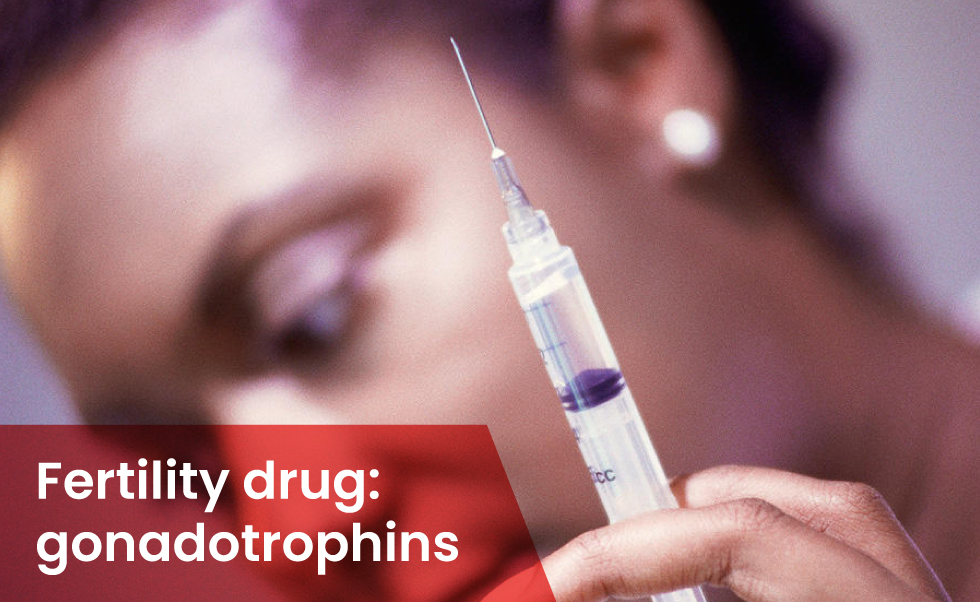In our culture, motherhood is often celebrated as a divine blessing, a gift that brings immense joy and fulfillment. Yet, for many women, the path to conceiving a child can be fraught with challenges. Fertility challenges are more common than we often acknowledge, but the good news is that there are treatments available to help you on your journey. One such treatment is the use of gonadotropins.
What Are Gonadotrophins?
Gonadotrophins are hormones that play a crucial role in the reproductive process. Naturally produced by the pituitary gland in both men and women, they regulate the production of eggs in women and sperm in men.
In fertility treatments, synthetic gonadotrophins are used to stimulate the ovaries to produce multiple eggs, increasing the chances of conception. This treatment is particularly useful for women who have difficulty ovulating on their own or for those undergoing assisted reproductive technologies such as in vitro fertilization (IVF).
What Is the Success Rate of Gonadotrophins?
The success of gonadotrophins varies depending on several factors, including age, overall health, and the underlying cause of infertility.
For women under the age of 35, the success rate can be as high as 20-30% per cycle when used in conjunction with intrauterine insemination (IUI). However, it’s important to remember that fertility treatments often require patience and persistence. While some women may conceive after just one cycle, others may need several cycles to achieve a successful pregnancy.
Are Gonadotrophins Right for Me?
Deciding whether gonadotrophins are right for you is a deeply personal decision that should be made in consultation with your healthcare provider. If you have been diagnosed with conditions such as polycystic ovary syndrome (PCOS), or unexplained infertility, or if you have not responded to other fertility treatments like Clomiphene Citrate, gonadotrophins may be recommended. However, they are not suitable for everyone, especially if you have certain health conditions or if there are other underlying factors contributing to infertility.
How Do Gonadotrophins Work?

Gonadotrophins stimulate the ovaries to produce multiple eggs during a single menstrual cycle. This is achieved by administering daily hormone injections, usually starting early in the cycle. The process is carefully monitored through ultrasounds and blood tests to ensure that the ovaries are responding appropriately and to reduce the risk of complications such as ovarian hyperstimulation syndrome (OHSS). Once the eggs have matured, another hormone, human chorionic gonadotropin (hCG), is administered to trigger ovulation.
How Long Will I Need to Be Treated with Gonadotrophins?
The duration of treatment with gonadotrophins can vary, but a typical cycle lasts about 10 to 14 days. During this time, you will need to visit your healthcare provider regularly for monitoring. If you do not conceive during the first cycle, your doctor may recommend repeating the treatment for up to three or four cycles. It’s important to approach this process patiently, as it can sometimes take several attempts before achieving a successful pregnancy.
Do Gonadotrophins Have Any Side Effects?
Like any medication, gonadotrophins can have side effects. Common side effects include bloating, mild abdominal pain, and mood swings, similar to the symptoms you might experience during your menstrual cycle.
In rare cases, more serious side effects can occur, such as OHSS, which can cause significant discomfort and require medical attention.
Multiple pregnancies (twins or triplets) are also a possibility, which can carry additional risks for both the mother and the babies. It’s important to discuss these risks with your doctor before starting treatment.
What Else Should I Know About Gonadotrophins?
One of the most important things to understand about gonadotrophins is that they require a strong commitment to the treatment process. This includes regular injections, frequent visits to your healthcare provider, and careful monitoring. While the process can be emotionally and physically demanding, the support of your family, partner, and healthcare team can make a significant difference. Maintaining a healthy lifestyle, including a balanced diet and regular exercise, is also important to optimize your chances of success.
What Brand Names Do Gonadotrophins Go Under?
Several brand names are commonly used for gonadotropins in India and worldwide. Some of the most well-known brands include Gonal-F, Follistim, Menopur, and Repronex. Your doctor will recommend the brand most suitable for your needs based on your medical history and the specifics of your fertility challenges.
Embarking on fertility treatment is a significant step, and understanding the role of gonadotrophins can empower you to make informed decisions on your journey to motherhood. While the process may seem daunting, remember that you are not alone. Many women have walked this path before you and have gone on to experience the joys of motherhood. Take each step with hope and confidence, knowing that support is available to help you achieve your dream of becoming a mother.







